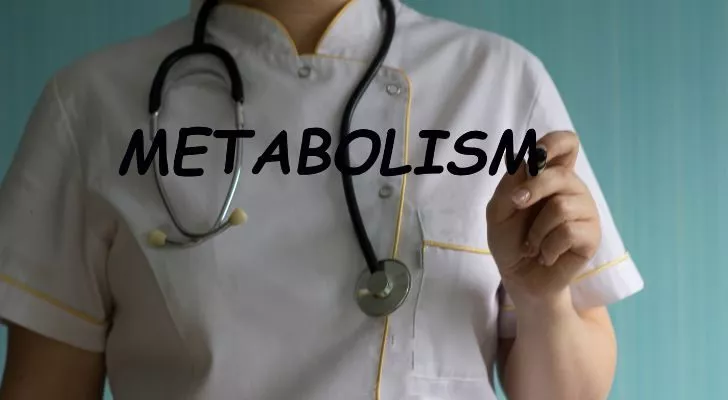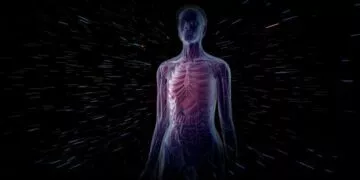Metabolism refers to the countless chemical reactions occurring inside your body. They’re necessary to keep you alive.
Biological processes in living things, such as digestion, reproduction, movement, detoxification, and respiration, are all part of metabolism.
It’s also crucial for maintaining important structures and repairing worn-out tissues in your body.
Metabolic processes need lots of fuel. However, it’ll take your body too long to get that much energy to make them run smoothly.
Fortunately, your body has cheat codes for these reactions called enzymes. These small molecules reduce how much energy these biochemical reactions need, which makes them proceed faster.
What are the types of metabolic processes?

Metabolic processes have two major categories. Let’s take a look at the types of metabolic processes below:
Anabolism.
Anabolism refers to the metabolic reactions that build up large molecules. They require energy to drive them.
Anabolic processes create biomolecules that your body needs to function. Your body also performs them to store energy.
A great example of an anabolic reaction is the process of making glycogen from glucose for storage.
Catabolism.
Your body can break down complex compounds into smaller units by catabolism.
For instance, the large protein you get from food is split into smaller amino acids.
Catabolic processes are often energy-releasing, meaning that the breakdown gives you energy.
Why is metabolism important?

Metabolism is an essential part of life. Here are the five main reasons why metabolism is necessary.
It breaks food down.
How does your body use all the chicken, fries, and chips you eat? Metabolism.
It all begins in your digestive tract; Enzymes break down these complex foods into smaller units. This means the complex proteins yield amino acids, carbohydrates turn to glucose, and lipids form simple fats.
Your body can absorb these smaller units. Once they enter your blood, it’s a trip to your liver and other tissues.
It releases energy.
The simpler food units you get from digesting food need further processing to produce energy. The complete breakdown of food forms water and CO2.
They also produce your body’s energy currency – ATP, which basically drives everything your body does.
It also stores energy.
What does your body do with excess energy? The short answer, store it for later.
Your body stores the excess calories as glycogen or fat. There are metabolic reactions for this, anabolic processes.
The energy stores come in handy later when your body needs fuel.
It produces essential molecules.
Your body needs many other biomolecules to function correctly.
Some important molecules your body needs are nucleic acids, signal molecules, hormones, and enzymes.
They are produced through metabolic processes.
It helps remove wastes in your body.
Many processes in your body produce wastes that may affect your health if they build up.
Your body has metabolic processes for removing these toxins. For instance, ammonia from the breakdown of amino acids is toxic, so your body converts this to urea, a significantly less poisonous substance.
Toxins from various sources undergo detoxification through metabolic reactions.
What is metabolic rate?

When people say metabolism, they’re talking about metabolic rate.
Metabolic rate refers to how much energy you consume within a specified period.
How do you increase your metabolism?

An imbalance in your body’s metabolism can affect your health. When your metabolic rate increases, you use more calories and keep the weight off.
On the other hand, a slow metabolism might make you feel sluggish and give you trouble with weight management.
Can you do something about it? Absolutely! Here are five natural ways to improve your metabolism:
Start exercising!
Workouts get your body moving so that you burn more calories.
High-intensity interval training (HIIT) requires sudden bursts of physical activity that require more energy.
They might be great at increasing your metabolism.
Eat more proteins.
Your metabolic rate increases slightly after a meal and provides the energy to break down your food.
It’s known as the thermic effect of food (TEF), and the effect is higher for proteins.
Drink cold water regularly.
Swap your sodas for a cold glass of water; it’ll help you slash your calories.
Furthermore, your body uses more energy to warm the cold water to meet your internal temperature.
Get a lot of sleep.
Sleep deprivation is bad news for your metabolism.
It’s also linked to several other health problems, such as diabetes.
Experts recommend that adults get up to 7-9 hours of sleep daily.
Build your muscles.
You’ll burn more energy if you have more muscle mass.
Start including weights in your exercise routine to build strong muscles.
In summary, metabolism is how your body performs its functions. Bodily processes that keep you alive such as digestion, excretion, detoxification, and biosynthesis, involve metabolic processes.
Your body uses fewer calories if your metabolism is slow. You can turn it up by exercising, sleeping better, drinking cold water, eating proteins, and building muscles.


















